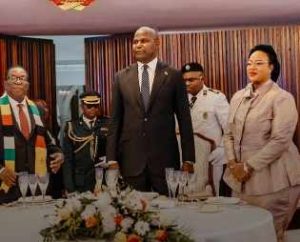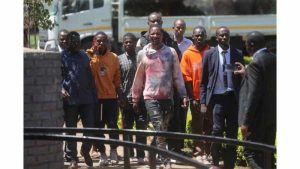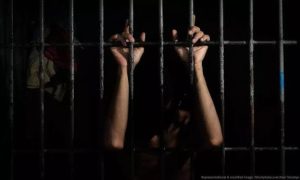
JOHANNESBURG, (CAJ News) – SOUTH Africa’s loud anti-immigrant rhetoric—driven by groups such as Operation Dudula, ActionSA, and the Patriotic Alliance (PA)—continues to dominate online spaces, but leading journalist and researcher Hopewell Chin’ono says the narrative is not only misleading but intentionally dishonest.
He argues that South Africa’s real crisis has nothing to do with foreign nationals and everything to do with “service delivery failures, corruption, and a bit of tribalism and racism.”
Chin’ono warns that social media noise has been weaponised to manufacture fear, despite data showing that anti-immigrant parties remain fringe.
“If elections were held on social media, Julius Malema would have been president… yet he received 9.52 percent of the national vote,” he said.
“If issues to do with immigration were decided on social media… the PA and ActionSA would be running the country, yet the two of them combined received only 3.26 percent,” argued Chin’ono.
This glaring contradiction exposes a key truth: the xenophobic panic amplified online is not reflected in the actual electorate.
Chin’ono notes that both the African National Congress (ANC) and the Economic Freedom Fighters (EFF) lost votes in 2024 not to immigration-focused parties but to Jacob Zuma’s uMkhonto weSizwe (MK) Party, driven largely by ethnicity, not migration politics.
“The numbers make this clear… Immigration is loud on social media in South Africa, but it is not a decisive national voting issue,” he said.
He further dismissed claims by Operation Dudula and similar groups that undocumented migrants are crippling South Africa.
“South Africa does not have an illegal immigration crisis. It has an immigration management problem caused by corruption and weak enforcement,” he argued.
According to Chin’ono, reputable research shows foreign nationals make up 7–8% of the population—normal by global standards—far below countries with real immigration pressure.
Instead of confronting the true culprits behind unemployment and failing public systems, populist movements have scapegoated migrants to gain political relevance.
Chin’ono accuses these groups of exploiting fear to secure parliamentary seats and lucrative state salaries. “If Operation Dudula gets one or two seats… its president and chairperson will eat,” he said bluntly.
He also exposes the manipulation of online discourse through coordinated ghost accounts. “You think you are talking to twelve people when you are actually talking to one,” he revealed, warning that the manufactured anger online creates a false impression of a national crisis.
Chin’ono emphasises that the real issues affecting South Africans—load-shedding, collapsing local councils, failing hospitals, and unemployment—are rooted in misgovernance.
“The real crisis lies in corrupt Home Affairs officials, poor border management, and employers who exploit undocumented workers,” he said.
In a pointed critique of political distraction tactics, he added: “Anything else is just hogwash.”
Chin’ono insists that until South Africa confronts corruption and fixes service delivery, xenophobic rhetoric will continue to distract voters while offering no solutions.
“Immigration is loud online,” he said, “but it is not what moves South African voters at the ballot box. The evidence from the 2024 election makes that clear.”
His conclusion is unmistakable: South Africa is not suffering from an immigration crisis. It is suffering from a governance crisis – CAJNews









